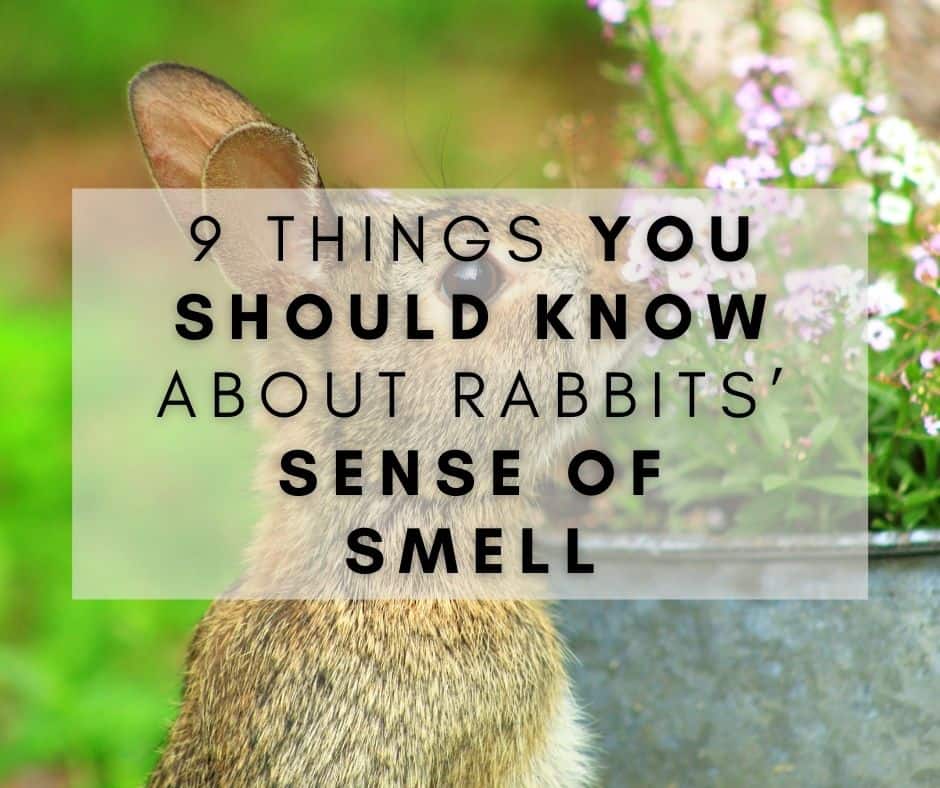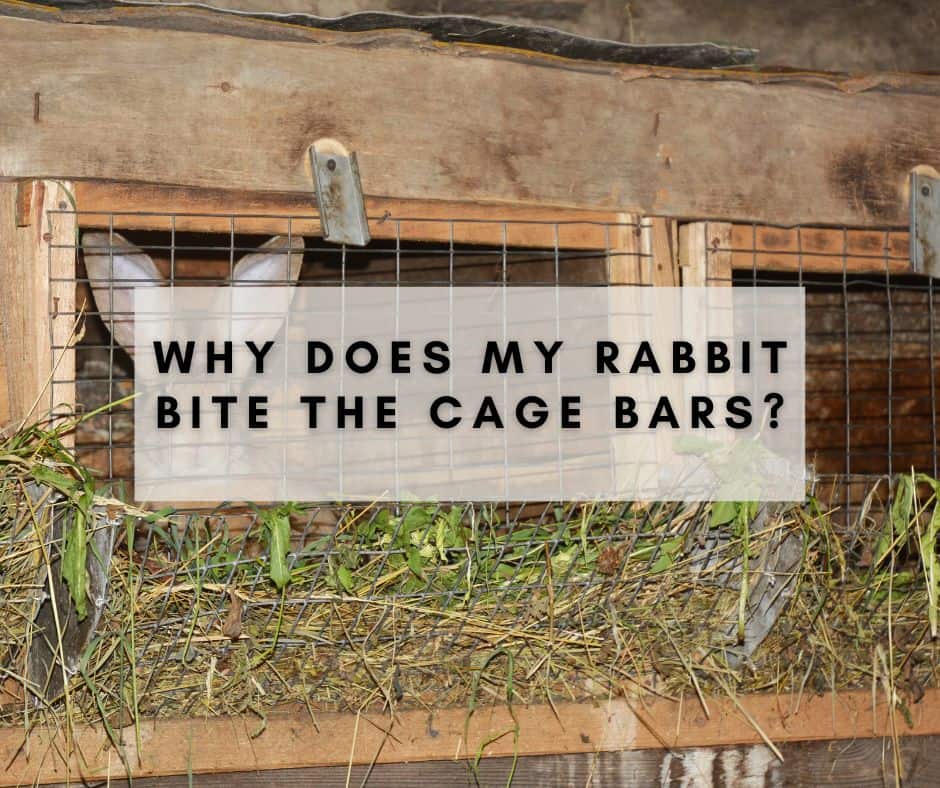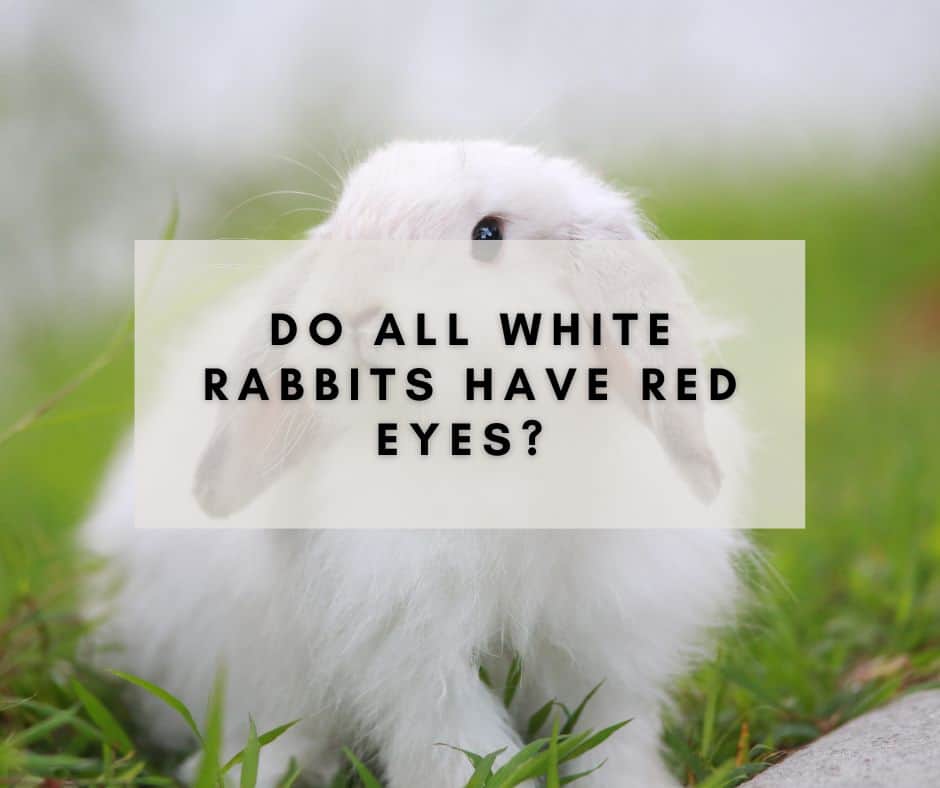Do you know how good a rabbit’s sense of smell is? Well, it’s pretty amazing! They can detect food from up to two miles away, and they can tell how old the food is. Their noses are also highly sensitive – they can sniff out traces of urine that are less than 0.5% as intense as what humans can detect!
As a matter of fact, rabbits have the best sense of smell of all animals!
Contents [show]
Can rabbits smell from far away?
Yes, rabbits have an incredibly strong sense of smell and can detect food from up to two miles away. They use their noses to navigate their environment and determine what is safe for them to eat or interact with. For example, rabbits can tell if another rabbit is sick or healthy, how old the food is, and what species are safe for them to interact with. They can also smell when you’re upset! This makes them very sensitive creatures that are highly attuned to their surroundings.
Do rabbits have a better sense of smell than dogs?
While it’s difficult to compare the senses of different animals, rabbits do have an incredibly strong sense of smell. Dogs can detect smells that are 100,000 times weaker than what humans can smell, while rabbits can detect smells that are 500,000 times weaker! This means that rabbits have a better sense of smell than dogs.
How does a rabbit’s sense of smell compare to other animals?
While it’s difficult to compare the senses of different animals, rabbits do have an incredibly strong sense of smell. Dogs can detect smells that are 100,000 times weaker than what humans can smell, while rabbits can detect smells that are 500,000 times weaker! This means that rabbits have a better sense of smell than dogs.
What smells do rabbits like?
Just like humans, each rabbit has their individual preferences when it comes to smells. Some rabbits may enjoy the smell of lavender or chamomile, while others may prefer more earthy scents like pine or eucalyptus. There is no one “right” answer – it’s all about what your bunny enjoys!
That said, there are several smells rabbits tend to be particularly attracted to. These include vanilla, parsley (the fresh kind), fir/pine type scents, cinnamon (but not chocolate or other candy containing cinnamon – it can make them sick!), and fruit tree branches.
Whether your rabbit loves apples or hates strawberries, everyone’s little sniffer is unique!

What smells do rabbits dislike?
Rabbits dislike any smell that they associate with predators. For example, rabbits tend to avoid the smells of garlic and onions because these are common ingredients in human foods that can be potentially dangerous for them. You should always consult a qualified veterinarian before trying new food products on your rabbit!
Below we have a list of products and smells that rabbits dislike.
- Products containing garlic or onion
- Citrus fruits (e.g., lemons, oranges, grapefruits)
- Mint
- Jasmine
- Rosemary
- Eucalyptus oil
- Garlic and onions
- Coffee
- Chocolates
- Spicy foods, including hot sauce or cayenne pepper. These can upset a rabbit’s stomach! They also have trouble digesting them properly which could lead to health problems down the road. It is best to avoid feeding any spicy foods as these can upset a rabbit’s stomach and can lead to health problems down the road.
- Cat or dog food
- – Cigarette smoke, as this is also harmful to their respiratory systems! It could potentially be fatal if too much of it accumulates in your home over time as well. Be sure you always take proper precautions when smoking indoors to avoid exposing your rabbit to cigarette smoke.
- Pesticides or herbicides
- Strong perfumes or colognes – these can be extremely overwhelming and unpleasant for rabbits, so try to avoid using them around your bunny if possible.
- Cleaning products – many commercial cleaning products have strong scents that may bother rabbits. Try using more natural and unscented cleaning products to reduce how strongly they affect your bunny.
What are rabbits whiskers for?
Rabbits have very highly developed sensory organs, and whiskers are considered to be one of their most important ones. As mentioned in previous articles rabbits can see well, but they cannot hear or smell as good as we do. That is the reason why they depend so much on their whiskers – it’s like having radar – these long, thick, and strong whiskers are constantly moving, touching objects around them, and retrieving information about the surroundings.
Can rabbits tell how old the food they’re eating is?
Yes, rabbits can detect how old the food they are eating by smelling it. They use this information to determine whether or not something may be safe for them to eat. For example, if a rabbit smells how old the food is and it has been sitting out for too long, it will not eat it. This is because the rabbit knows that the food has gone bad and could make them sick.
Do rabbits ever get sick from smelling things?
What are the signs of when a rabbit is sick from smelling something?
When a rabbit runs into an object after smelling it there may be minor visible injuries such as cuts or scrapes which have blood. They may also have visible mental changes such as not wanting to come near you, not knowing where they are, or not caring about what is going on around them.
What should you do if your rabbit smells something and gets sick?
If your rabbit smells an object that could be poisonous they need to be brought to a vet immediately. The sooner the problem is found the better chance of recovery.
Conclusion
In conclusion, rabbits have a very sensitive sense of smell. They use this to determine how old the food they are eating is and whether or not it may be safe for them to eat. Their incredible noses allow them to detect potential dangers in their environment as well as how upset someone else might be if they can smell how emotional that person is. Imagine if we humans had this ability, yikes!




